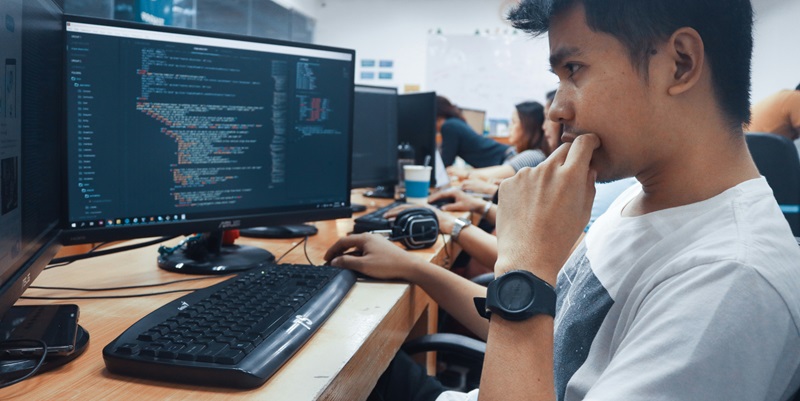In the dynamic sphere of software development, Cognition AI is leading an evolution with their groundbreaking assistant, Devin. Designed to reshape how coding tasks are approached, Devin is a smart assistant that adapts and learns from interactions, continually refining its capabilities. It’s crafted to seamlessly integrate into a developer’s workflow, equipped with tools like a shell, code editor, and browser. Devin operates in a virtual environment that replicates a typical coding setup, ensuring a familiar yet innovative experience for developers. As it operates, Devin doesn’t only perform tasks but also identifies and corrects errors, enhancing efficiency and accuracy in software development processes. This AI solution symbolizes a step forward in the application of artificial intelligence within the development field, promising to augment the work of human programmers by handling routine tasks and allowing them to focus on more complex challenges.
A New Era of Development
Collaborative Engineering with AI
Devin stands out in the realm of software development for its remarkable capacity to partner with users dynamically, offering timely guidance, updates, and taking part in essential decision-making. Its high level of interactivity distinguishes it, making it seem more like a co-contributor than a mere tool. Developed with precision by Cognition AI, Devin serves as a companion engineer, adept at assimilating feedback and pivotal in navigating projects to success. This co-active bond between human developers and AI is cutting-edge, laying the groundwork for a transformative collaborative model in software engineering. Through this partnership, the integration of human ingenuity and artificial intelligence is redefining the creative process, ensuring efficiency and innovation are at the forefront of every development cycle. Devin’s role is integral, as it fosters a seamless synergy that enhances overall productivity and project outcomes.
Artificial Intelligence in Continuous Learning
Devin is an AI that thrives on collaboration and self-teaching. With a particular talent for absorbing new software technology knowledge, it fine-tunes its proficiency in code correction through persistent self-improvement. Devin’s prowess is showcased in its ability to continually enhance AI models, a trait that has led to tangible achievements. A notable project on Upwork, where Devin applied computer vision to evaluate road damage, testifies to its advanced capabilities. Moreover, Devin’s performance on benchmarks like SWE-benchmarks marks significant progress compared to prior attempts. This improvement is particularly evident in its adeptness at tackling GitHub issues, which attests to Devin’s versatile expertise in the realm of software engineering. This consistent learning and application across varying challenges underscore Devin’s growth and potential in tech fields.
Exploring Devin’s Impact
The Future of Engineering Jobs
Devin’s emergence in the engineering sector could be both a boon and a bane. It heralds increased productivity and the ability to solve intricate problems efficiently. However, this progress brings a looming risk to entry-level engineering jobs, as AI’s capabilities could replace human proficiency in these areas. This pivotal moment in the software industry marks a potential shift, as the job market may need to adapt to the changing roles influenced by AI advancements. Professionals in the field might have to navigate this transformation, recalibrating their skills and roles to align with the evolving demands. As Devin continues to evolve, the engineering landscape is poised to undergo a significant transition, redefining job descriptions and requiring a deeper insight into the integration of AI in daily tasks. The dichotomy of Devin’s impact is clear – while it unlocks new possibilities, it also casts uncertainty over traditional engineering roles, paving the way for a reimagined future in the job market.
The Maturation of AI in Software Development
The evolution of Devin showcases a significant maturation phase for AI in the software development realm. Garnering both praise and critical attention, Devin’s functionality as an AI instrument is recognized, yet it also triggers debates about the broader consequences for stakeholders in AI services. Industry experts, such as Yariv Adan from Google, underscore the substantial systemic effects of such developments, underlining the importance of thorough assessment.
As Devin transitions from its initial niche role to wider availability, it is set to proliferate AI agents across numerous industries, mirroring Cognition AI’s vision for widespread innovation. This progress points to a future where AI’s presence is deeply embedded in the fabric of the tech industry, a testament to the evolutionary journey of AI capabilities like that of Devin. This trajectory not only highlights the vast potential of AI but also the critical discourse it generates regarding its ethical use and societal impact.

